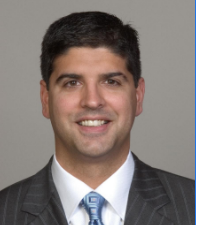

On September 8, 2021, the Department of Justice, in connection with the Office of Inspector General, announced a settlement of $17 million against a home health agency that purchased two home health agencies from a retirement home owner and operator.
Not to be outdone, on September 10, the DOJ and OIG announced the arrest of the owner of Nursemind Home Health, Inc. and her nephew for alleged roles in committing healthcare fraud related to patients of senior living facilities for hospice care.
These two recent cases highlight that the DOJ and OIG are continuously scouring the healthcare landscape for instances of healthcare fraud and abuse — even in the face of the pandemic. Let’s take a closer look at what we can learn from these two cases.
Bayada Settlement
Here’s what we know about the settlement so far. It is likely that further prosecutions will result from this investigation, including possible criminal prosecution which the settlement specifically mentions.
Bayada Home Health Care Inc., Bayada Health LLC and Bayada Home Care (collectively, “Bayada”), headquartered in Moorestown, NJ, agreed to pay $17 million to resolve allegations that they violated the False Claims Act’s Anti-Kickback Statute by paying a kickback to a nursing home operator by purchasing two of its home health agencies located in Arizona, and seeking referrals from those agencies.
In other words, the kickback here was not a typical tit-for-tat kickback payment for each patient referral. Rather, the government saw through an isolated asset purchase transaction and identified that transaction as the disguised kickback scheme for future referrals.
Remember, the Anti-Kickback Statute not only prohibits actual payments knowingly paying or offering to pay for referrals of patients — it also prohibits payments in cash or in kind toward the inducement of referrals.
Here, the payment by Bayada for the purchase of two home health agencies owned by a nursing home was enough to convince the government that the transaction amount paid to the nursing home owner was a kickback used to induce them to send patients to Bayada-owned agencies.
Also, remember that it is not only illegal to offer or pay kickbacks under the Anti-Kickback Statute, but it is also illegal to receive those payments. So here, it is likely the nursing home owner who sold the agencies to Bayada will also face charges or penalties. In fact, the settlement agreement recently published on the DOJ website purposely and conspicuously redacted the names of the nursing home and owner, presumably because they are still under investigation.
Nursemind Case
In El Paso, TX, the owner of home health agency Nursemind and her nephew provided hospice care services to senior living facilities. Allegedly, these two individuals fraudulently created medical records, forged signatures and submitted false claims to Medicare. In addition, the owner also allegedly offered kickbacks to senior living facilities in exchange for patient referrals.
Both the owner and her nephew face up to 10 years in prison for the false claims, and the owner faces an additional five years in prison for the Anti-Kickback charges. The investigation continues against the senior living facilities that may be involved in receiving kickbacks, if any.
What is likely to happen in this case is that the arrested individuals will attempt to cop a plea by ratting out other fraudulent actors or players in the scheme in exchange for a reduced sentence. Therefore, it is possible that these two arrested individuals will implicate others, possibly the senior living facilities involved, to help the DOJ prosecution of further fraud. Again, it remains possible that any senior living facilities involved will receive their due investigation from the DOJ and OIG, including possible civil and criminal penalties.
As a result of these recent prosecutions, nursing homes should pay close attention to their relationships with home health agencies. Just because our federal government has been dealing with the pandemic for the last year and a half doesn’t mean that prosecution of healthcare fraud stops.
Nursing homes should be vigilant in implementing, enforcing, monitoring, auditing and updating their corporate compliance and ethics programs to root out even the possibility of fraud. Furthermore, when the government comes knocking, be ready, as this article notes.
Paying special attention to these cases and effective corporate compliance and ethics programs is key for nursing homes to stay out of trouble.
Neville M. Bilimoria is a partner in the Chicago office of the Health Law Practice Group and member of the Post-Acute Care And Senior Services Subgroup at Duane Morris LLP; [email protected].
The opinions expressed in McKnight’s Long-Term Care News guest submissions are the author’s and are not necessarily those of McKnight’s Long-Term Care News or its editors.





